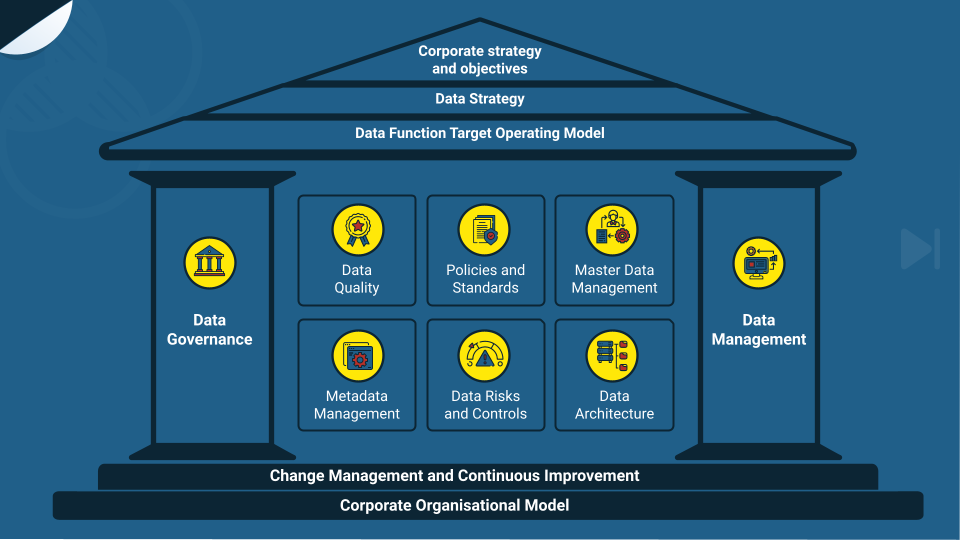Databases
Four Best Data Management Frameworks For Your Company

No matter what type of business you have, big data is likely a part of your operations. And as data becomes increasingly important to companies, the need for effective data management frameworks grows.
There are a variety of data management frameworks available, each with its own strengths and weaknesses. Choosing the right one for your company can be challenging, but the experts at Profisee.com believe it’s crucial to select a framework that will support your business needs.
What is a data management framework?
A data management framework is a set of processes and policies that govern how data is collected, stored, accessed, and used. A well-designed data management framework can help your company improve decision-making, optimize operations, and protect sensitive information. The perfect data management framework will be tailored to your business’s unique needs and help you manage your data assets better.
What are the benefits of a data management framework?
Companies implementing a data management framework can enjoy several benefits, from optimization to compliance. Some of the most common benefits of a data management framework include:
Improved decision-making
A data management framework can help you collect and organize data to make it easy to access and use. You’ll make better decisions by having quick and easy access to the information you need.
Optimized operations
A data management framework can help you streamline your operations by automating tasks and improving efficiency. You’ll be able to do more with less by eliminating manual processes and using data more effectively.
Enhanced security
A data management framework can help protect your data assets by implementing security controls and establishing access policies. You’ll be able to safeguard your data and reduce the risk of unauthorized access.
Improved compliance
A data management framework can help you meet industry regulations and compliance standards. You’ll be able to avoid costly fines and penalties by following best practices for data management.
The different types of data management frameworks
Several types of data management frameworks are available, each with advantages and disadvantages. The frameworks also vary in terms of complexity, so it’s important to choose one that’s right for your company.
The most common master data management frameworks are multidomain, customer data integration, product information management, and vertically focused.
Multidomain
A multidomain master data management framework is a comprehensive approach that manages all of your company’s data in a central repository. It consolidates multiple databases into a single system and provides a single control point. Profisee.com is one example of a multidomain master data management framework.
Customer Data Integration
A customer data integration framework is designed to create a single view of your customer by consolidating multiple databases. It’s often used to create a 360-degree view of the customer. A popular choice for customer data integration is the Oracle Customer Hub.
Product Information Management
A product information management framework helps you manage product data across multiple channels and touchpoints. It’s often used to create a centralized product catalog. SAP Product Master Data Governance is one example of a product information management framework.
Vertically Focused
A vertically focused data management framework is designed for a specific industry or sector. It often includes industry-specific processes and templates. One example of a vertically focused data management framework is Guidewire’s P&C Data Management Framework.
How to choose the proper framework
There are a few factors to consider when choosing a data management framework, including company size, business needs, and IT infrastructure.
Company size:
The framework you choose should be scalable to support your company’s growth. You may not need a large and complex framework if you’re a small company. However, if you’re a growing company, you’ll need a framework to accommodate your future needs.
Business needs:
Consider your business needs when choosing a data management framework. If you need to consolidate multiple databases, you’ll need a framework that supports data integration. To create a central product catalog, you’ll need a framework that promotes product information management.
IT infrastructure:
Your IT infrastructure will also play a role in your decision. If you’re using an on-premises solution, you’ll need a framework that supports your existing technology stack. If you’re using a cloud-based solution, you’ll need to choose a framework compatible with the cloud.
Final thoughts
Several types of data management frameworks are available, each with its advantages and disadvantages. The right data management framework can help you improve your data quality, security, and compliance. It can also save you time and money by consolidating multiple databases into a single system. To choose the best data management framework for your company, consider your company size, business needs, and IT infrastructure.

